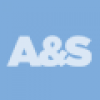By Sarah Geegan
The UK and Lexington community will have a rare opportunity on Tuesday, June 5 — one that will not occur again for more than 100 years.
The Arboretum, the MacAdam Student Observatory and the Bluegrass Amateur Astronomy Club will present, "Standing in the Shadow of Venus," two events which will allow the community to both understand and observe the transit of Venus.
A solar transit involves an object in the solar system moving exactly between the sun and the observer; Venus will appear to glide slowly across the surface of the sun. Transits of Venus are especially rare, occurring at intervals of 8, 105.5, 8, 121.5, 8…












